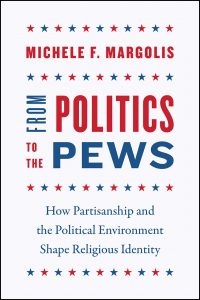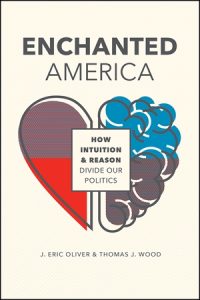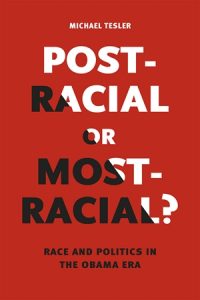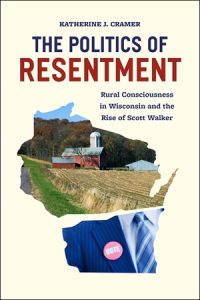In the wake of the midterms, time to #TurnItUP!








The University Press week blog tour continues, today with a focus on politics. Georgetown University Press provides readers with some resources. A post from Teachers College Press features a list of books on politics and education. A Q&A with Michael Lazzarra, author of Civil Obedience (Critical Human Rights series) about how dictatorships are supported by civilian complicity is posted by the University of Wisconsin Press. Rutgers University Press highlights three recent politics books: The Politics of Fame by Eric Burns and the reissues of classics Democracy Ancient and Modern by M.I. Finley and Echoes of the Marseillaise by Eric Hobsbawn. UBC Press describes their new Women’s Suffrage and the Struggle for Democracy series. Over at LSU Press, there’s a post about their new list dealing with contemporary social justice issues, pegged to Jim Crow’s Last Stand and the recent state vote to ban non-unanimous criminal jury verdicts. An interview with Dick Simpson and Betty O’Shaughnessy, authors of Winning Elections in the 21st Century can be found courtesy of the University of Kansas Press. Harriet Kim provides a selection of interesting politics titles that she recently brought back into print as part of the Heritage Book Project at the University of Toronto Press. A spotlight on two recent additions to the Politics and Culture in the Twentieth-Century South series that focus on defining the white southern identity through politics can be found at the University of Georgia Press. And last, but not least, The University of Virginia Press is publishing an updated edition of Trump’s First in time for second anniversary of the inauguration.
The midterm elections that were held last week let loose a flood of punditry. The Democrats rode a wave! The Republicans held strong! Voters pulled the lever based on economic issues! Voters made their choices for cultural reasons! Every angle had an advocate, and each spoke with certainty.
And all that is on top of book after book after book published in the past two years by pundits and politicians alike claiming to explain our current political moment. How do you know who’s right? Whose take should you take?
That’s where we come in, along with our peers in the university press world. Having University Press Week launch right after the midterms is perfect, because it gives us an opportunity to remind people that what our books on politics do is different from the run of the mill. Theirs have opinions. Ours have data. And that data can tell stories that pundits haven’t yet begun to grasp.
Let’s look at some examples. A few years ago, well before the Trump campaign, Katherine J. Cramer was interviewing voters across her home state of Wisconsin and discovering that a lot of the politics in that state were being driven by rural resentment against urban “elites;” The Politics of Resentment has been a touchstone for scholars and activists trying to understand that dynamic ever since. Michael Tesler, meanwhile, examined data on racial attitudes and voting and, in Post-Racial or Most-Racial, put paid to the idea that the election of President Obama had ushered in a post-racial era. This year, meanwhile, has seen Daniel J. Hopkins explore the ever-tighter relationship between national and local politics (and its deleterious effects on democracy) in The Increasingly United States; Liliana Mason showing how politics has begun to overwhelm what used to be separate, independent aspects of identity in Uncivil Agreement; Michele F. Margolis reversing the conventional understanding of how religious identity and political affiliations interact in From Politics to the Pews; Benjamin I. Page, Jason Seawright, and Matthew J. Lacombe looking at what the billionaires whose money drives so much of our politics want—and bringing the receipts—in Billionaires and Stealth Politics; Sam Rosenfeld with The Polarizers showing us that you can blame our current polarization (at least to some degree) on the deliberate actions and arguments of midcentury political scientists who were worried the parties were getting too uniform; and in Enchanted America J. Eric Oliver and Thomas J. Wood lay out the ways in which the gap between how rationalists and intuitionists see the world could make that polarization ever harder to manage.
In every case, these scholars have taken a sober, straightforward look at the available information—much of it the result of their own efforts in interviewing, surveying, or collecting data—and have drawn conclusions that offer insight into our current moment, how we got here, and where we might be headed.
Two years from now, no one will remember Bob Woodward’s Fear (to say nothing of Omarosa’s book, or Newt Gingrich’s Trump’s America, etc., etc.). These books, on the other hand, will continue to drive scholarship, inform activists of all political persuasions, and improve our understanding.
That’s what university presses do. That’s what University Press Week is all about. The ever-expanding American electoral campaigns mean that 2020 will loom before we know it. With books like these in our bookstores and libraries, we can at least go into it with knowledge.
#TurnItUp, readers. You’ll be glad you did.
